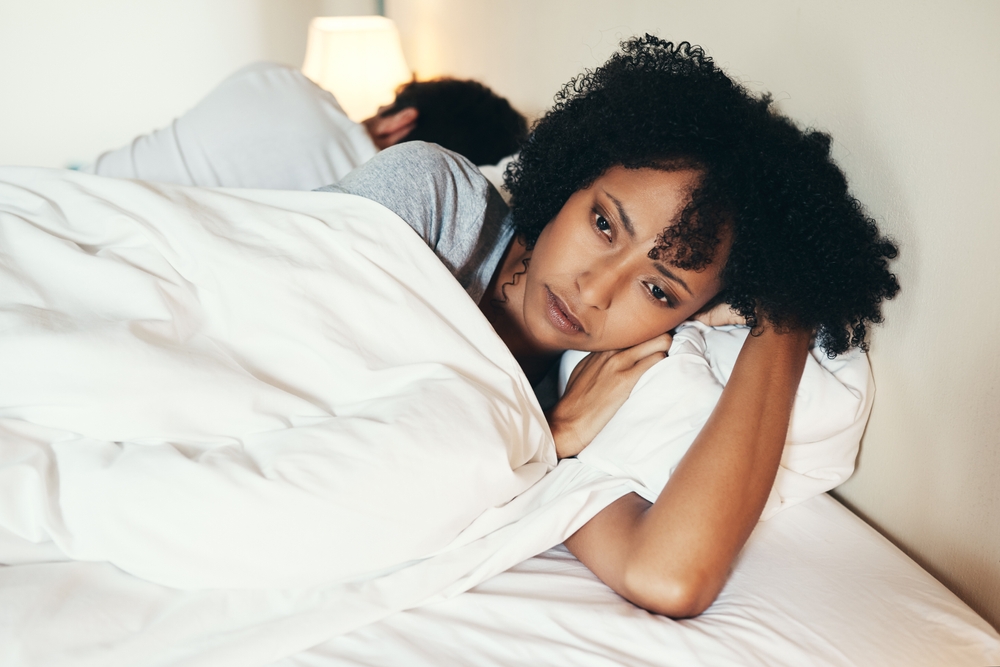Sex is often considered an important part of human relationships and overall health. When a person stops having sex for an extended period, various physical, emotional, and psychological changes can take place. While some effects may be negative, others could be positive depending on individual circumstances. Here is an in-depth look at 10 things that happen when you stop having sex.
1. Hormonal Changes Occur

Sex triggers the release of hormones like oxytocin, dopamine, and endorphins. When you stop having sex, the levels of these hormones can decrease significantly. Oxytocin, known as the “love hormone,” helps build emotional bonds and reduce stress by promoting feelings of trust and closeness. A reduction in oxytocin may impact emotional intimacy in relationships. Dopamine, which is linked to pleasure and reward, also declines, potentially affecting mood, motivation, and feelings of happiness. However, the body usually adjusts over time to these hormonal changes, often finding balance through other activities that stimulate similar chemicals.
2. Stress Levels May Increase

Regular sexual activity has been shown to lower cortisol, the stress hormone, which helps regulate the body’s stress response. Without sex, some people may notice an increase in stress and anxiety levels because sexual intimacy serves as a natural stress reliever by promoting relaxation, emotional connection, and release of tension. The absence of this outlet might cause individuals to feel more tense or overwhelmed. That said, stress can be managed effectively through other activities like exercise, meditation, deep breathing techniques, and maintaining strong social connections, which can also trigger positive hormone release.
3. Immune Function Can Be Affected

Some research suggests that sexual activity can boost the immune system by increasing levels of certain antibodies, such as immunoglobulin A (IgA), which helps fight infections. Without regular sex, these immune benefits might decrease slightly, possibly leading to a higher vulnerability to common illnesses like colds or the flu. Although the overall impact is usually mild, it highlights the link between intimacy and immune health. Still, the immune system is influenced by many other factors such as diet, sleep, stress levels, and physical activity, which play major roles in maintaining health regardless of sexual activity.
4. Changes in Sleep Patterns

Sex often promotes better sleep because of the hormone prolactin, which increases after orgasm and helps with relaxation and sleepiness. When you stop having sex, this natural aid to sleep may diminish, potentially leading to difficulties falling asleep or staying asleep throughout the night. This can result in feeling more fatigued or less refreshed during the day. However, good sleep hygiene practices like limiting screen time before bed, maintaining a consistent schedule, and creating a comfortable sleeping environment can help improve sleep quality without the need for sexual activity.
5. Altered Self-Esteem and Body Image

For some individuals, sexual activity positively influences their self-esteem and body image by providing a sense of desirability and validation. When sex is absent, people might feel less attractive, less confident, or experience negative thoughts about their bodies, which can impact overall mental health. This effect is especially true if the person closely associates their sexual activity with feelings of worth or connection. Conversely, some may experience improved self-esteem by focusing on personal goals, physical fitness, and self-care routines, learning to appreciate themselves beyond physical or sexual validation.
6. Physical Health Effects

Regular sexual activity offers several physical benefits, such as improving cardiovascular health by increasing heart rate, burning calories, and strengthening pelvic floor muscles. When sex stops, these physical benefits may lessen over time. For example, weakened pelvic muscles can lead to issues such as urinary incontinence or reduced sexual function in some people. Additionally, lack of physical intimacy might reduce overall activity levels. That said, these effects can often be countered through regular exercise, pelvic floor strengthening routines, and maintaining a healthy lifestyle that supports physical well-being beyond sexual activity.
7. Emotional and Psychological Shifts

Sexual intimacy promotes emotional bonding and reduces feelings of loneliness through the release of bonding hormones like oxytocin and endorphins. Without sex, some people may experience feelings of isolation, sadness, or emotional disconnect, especially if sex was part of a close, loving relationship. These feelings might sometimes lead to mood swings or depression. On the other hand, individuals who choose abstinence for personal, religious, or health reasons might feel emotionally empowered, more focused, and peaceful. The emotional impact of stopping sex varies widely depending on one’s mindset and support system.
8. Libido Fluctuations

Stopping sex can lead to changes in libido, which varies widely from person to person based on physical and psychological factors. Some people may experience a decrease in sexual desire due to reduced stimulation and hormonal changes. Without regular sexual activity, the brain receives fewer signals that encourage sexual interest. Others might notice an increase in libido after a period of abstinence, often called a rebound effect, where desire intensifies due to the temporary pause. Both responses are normal and depend on factors such as age, general health, emotional well-being, and relationship status.
9. Effects on Relationships

In couples, sexual activity often strengthens emotional bonds and fosters communication by creating opportunities for closeness and vulnerability. Without sex, partners might face challenges such as feeling emotionally distant, misunderstood, or less connected. Lack of physical intimacy can sometimes lead to frustration, resentment, or conflict if not addressed openly. However, many couples maintain strong, loving relationships without sex by focusing on emotional intimacy, shared interests, and open communication. Exploring different ways to connect physically and emotionally can help maintain relationship satisfaction despite changes in sexual activity.
10. Opportunities for Personal Growth

Finally, stopping sex can provide time and space for personal reflection, growth, and self-discovery. Without sexual distractions or pressures, some people focus more on self-improvement, pursuing hobbies, advancing their careers, or strengthening friendships. It can also be a time to explore emotional needs, spiritual beliefs, and develop a deeper understanding of oneself. Choosing to abstain from sex can be a healthy, empowering decision when done intentionally, helping individuals gain clarity, confidence, and greater control over their lives and well-being.
Conclusion

Stopping sexual activity leads to a variety of changes that affect the body, mind, and relationships in complex ways. While some effects, such as hormonal shifts and altered sleep, may feel challenging, others like personal growth and emotional empowerment can be positive. It is important to remember that everyone’s experience is unique, and lifestyle factors play a significant role in how these changes manifest. Whether temporary or long-term, understanding what happens when you stop having sex can help you better manage your health and overall well-being.
Disclaimer: This article was created with AI assistance and edited by a human for accuracy and clarity.

